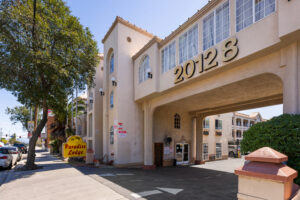Bay Area hotel market struggles with post-COVID hangover
Bay Area hotel market struggles with post-COVID hangover
Recovery in San Jose badly trails other Western cities
By GEORGE AVALOS | gavalos@bayareanewsgroup.com | Bay Area News Group
PUBLISHED: May 22, 2023 at 5:30 a.m. | UPDATED: May 22, 2023 at 3:50 p.m.
The Bay Area’s hotel industry is still struggling to rebound from coronavirus-linked shutdowns, even as the lodging sector outside the region has flourished. And not everyone is in agreement about what’s to blame.
San Jose’s core hotel markets have been far slower to recover financially from the pandemic than those in other major city centers in the western United States. Hotel revenues in San Francisco and Oakland also remain sluggish.
Downtown San Jose ranked dead last in the peer group of 14 markets in terms of its recovery, according to information that STR, which analyzes the hospitality market, provided to this news organization. San Jose’s airport area was nearly as feeble.
“San Jose has a heavy reliance on high-tech business travel, which has not rebounded post-COVID,” said Alan Reay, president of Atlas Hospitality Group, which tracks the lodging sector.
Together, San Jose’s hotel markets downtown and near the airport generated revenues in 2022 that were 45% below the 2019 total, before the pandemic began.
Downtown San Jose’s hotel market alone was even worse, generating revenue in 2022 that nosedived 48.9% below the 2019 level. In other words, downtown hotels captured $76.7 million in revenue in 2022, well short of the $150 million the market generated in 2019, STR reported.
Oakland and San Francisco-San Mateo joined San Jose at the bottom of the barrel when compared with rival markets in the West. Compared with 2019, hotel revenues in the San Francisco-San Mateo market plunged 35.9% in 2022, STR found. Oakland hotel revenue plummeted 19.4% during the same time.
The Bay Area markets trail competitors like Anaheim; Austin, Texas; San Diego; Phoenix; Seattle — and even far smaller Portland.
Team San Jose — which is tasked with promoting tourism and operates the San Jose McEnery Convention Center, South Hall and multiple San Jose theaters — also identifies the decline in business travel as a key culprit.
“Before the pandemic, we were one of the very best hotel markets for business travel, with some of the highest room rates,” said Laura Chmielewski, Team San Jose’s vice president of marketing and communications. “We had a lot of tech company business. That has declined.”
Other locales are not as reliant on business in one sector, like tech, where many employees continue to work remotely.
“The same companies that were providing the downtown San Jose hotel visits before the pandemic have largely embraced a work-from-home model,” Chmielewski said. “Hybrid work has greatly reduced demand for business travel.”
In Austin, the hotel revenue total jumped 25.2% in 2022 compared with 2019, while Phoenix hotel revenue in 2022 was up 23.4% from 2019, STR reported. During the same span, hotel revenues were up 15.9% in San Diego and 12.8% in Salt Lake City. Anaheim, Denver and Los Angeles managed single-digit revenue increases when comparing the periods, STR determined.
“The Phoenix and Austin markets have both benefited from having a very diverse base of business and not heavily reliant on one industry, such as tech for San Jose and tech and major conventions for San Francisco,” Reay said.
But skeptics don’t think Team San Jose’s post-COVID efforts to drum up convention and visitor business have been sufficient either.
“The identity of San Jose and the mission of Team San Jose are unclear,” said Sam Hirbod, principal owner of the city’s largest hotel, the double-tower Signia by Hilton San Jose, which used to house the Fairmont. “Are we a tech town? Are we a safe town? What is the city’s image?”
Bob Staedler, principal executive with Silicon Valley Synergy, a land-use consultancy, has heard similar concerns from others.
“When you talk to the hospitality community, they are frustrated by Team San Jose and their lack of drive to improve the hotel room bookings,” Staedler said.
Some critics point to San Jose’s failure to regain a long-time convention meeting, Silicon Con, a yearly pop culture and technology convention. San Jose hosted those events for numerous years. COVID, of course, interrupted the meetings.
Yet Silicon Com defected to Santa Clara for the 2023 event, although it was subsequently canceled.
“Historically, Silicon was a summer group,” Chmielewski said. “They did come back and requested fall dates this time that were unavailable. They did not wish to change their dates to accommodate the available schedule. The client who had already booked the time is a multiple-year, global summit with a higher economic impact.”
Critics also wonder why phone calls placed to the main number can go unanswered in real time. Calls are directed to a voicemail, the main website or email.
“Although our offices are currently closed, San Jose remains open for business and our work continues,” a Team San Jose voice greeting stated recently during weekday business hours. “We look forward to hearing from you by email.”
Still, Team San Jose believes it is making progress to spur a San Jose recovery.
“We are pursuing our old tech clients,” said Ben Roschke, Team San Jose’s vice president for research and strategic development. “We are looking at diversification from business travel. We continue to ramp up. But it’s a boat that turns around slowly.”
Some hotels aren’t waiting for Team San Jose. The Signia now seeks to self-book events and lessen reliance on the convention agency.
“We have no choice but to find more business on our own,” Hirbod said. “We can’t wait for Team San Jose and their lack of performance and their lack of vision.”


